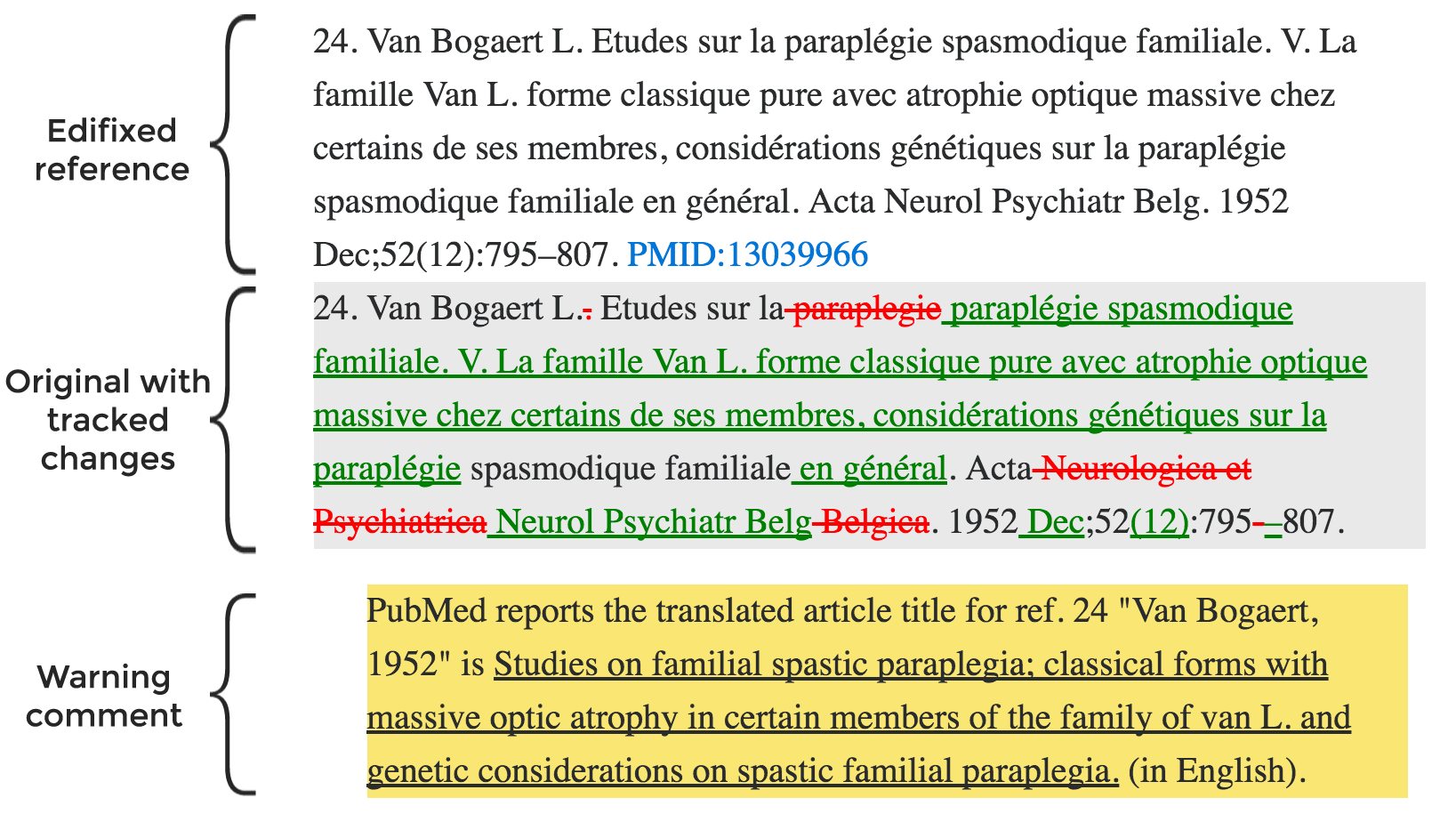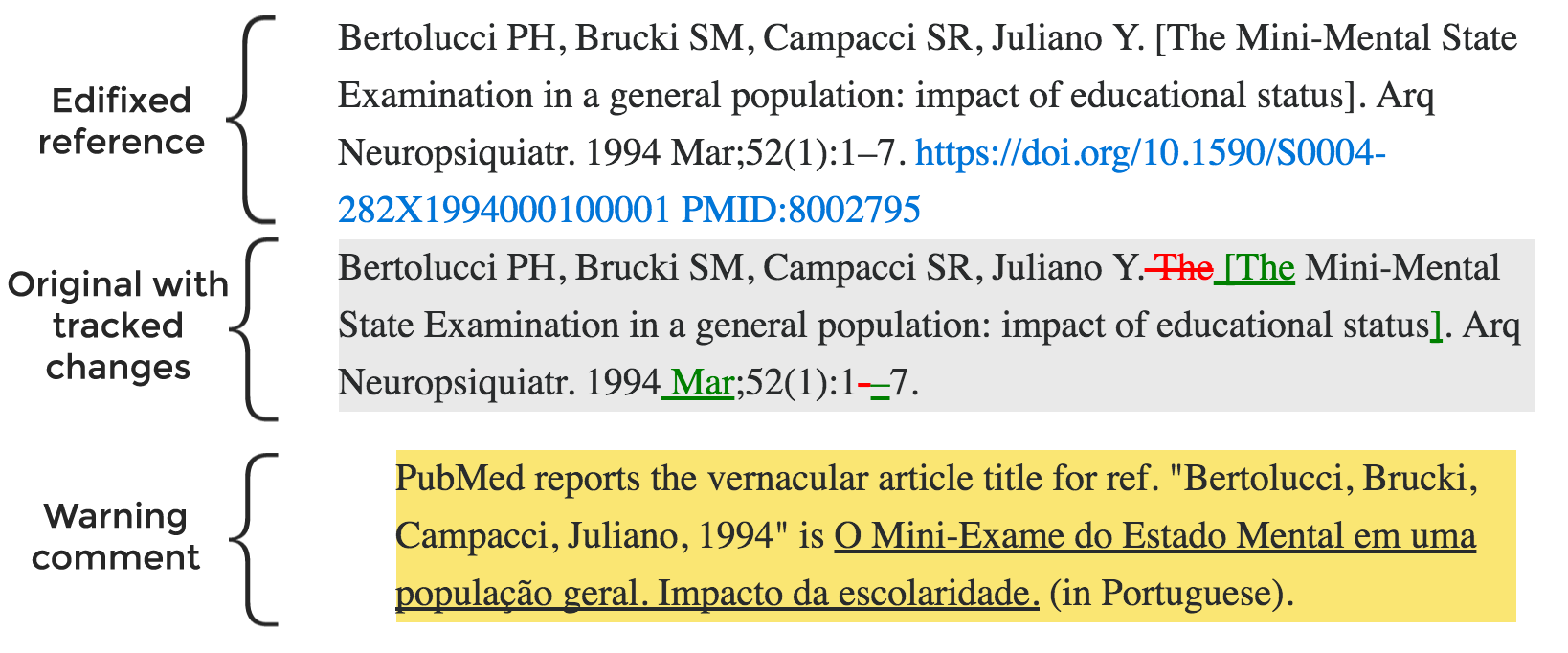Case Studies
Learn how Edifix is helping publishing organizations around the world
Caboverde and Edifix
Improving Citation Accuracy to Close Gaps in the Scholarly Communications Chain
Founded by director Alvaro Bussab in 1994, Caboverde is a full-service supplier to the scientific and scholarly publishing community in Brazil, and since 1998 it has delivered more than 180,000 articles to SciELO (Scientific Electronic Library Online). Located in São Paulo, Caboverde began using Edifix in 2014.
Caboverde’s mission is to minimize the gap between links in the information chain. Their services include digital imaging, file conversion, design, consulting, composition, and development.
A Key Player: SciELO
Caboverde’s association with SciELO goes back almost to SciELO’s inception as “a publicly funded initiative set up to promote cooperative, free electronic publishing of scientific journals from developing countries; the development of regional databases; and the implementation of indicators of scientific literature usage.”1 Founded in 1997, SciELO now indexes and archives over 1200 journals and hundreds of thousands of scientific papers from Brazil, Spain, South Africa, and a dozen Spanish-speaking countries in North, Central, and South America and the Caribbean. SciELO’s archive includes more than 13 million citations.
For participating journals, SciELO’s bibliometric indicators are a key benefit. To facilitate calculation of these metrics, SciELO has strict requirements for submission of metadata and full-text XML, including tagging and linking of citations. In addition, SciELO’s mandate to serve developing countries makes citation accuracy and citation linking particularly crucial, as inaccurate citations and linking failures may preclude access to the cited resources for researchers in these countries.
The Challenge: A Crucial Service, a Manual and Time-Consuming Process
As researchers have documented,2,3 inaccurate referencing has been an issue for decades. According to estimates, the proportion of published references that contain errors is at least 5% and can be as high as 50%,2 depending on the source and the discipline.
A study on citation accuracy published in 2004 in Clinical Anatomy examined three anatomy journals and found that 27% of published references contained errors—38% of which were classified as major errors.4 A 2005 study from the University of California found 45 distinct errors in references to a single, well-cited source, and another reference that had been mis-cited over 250 times!3
Citation accuracy is arguably more problematic in an online publishing environment than when print was the version of record.
One key service offering for Caboverde’s clients, therefore, is their bibliographic and editorial standardization—including verifying and correcting approximately 18,000 reference entries for about 700 articles published in approximately 35 journal issues per year. This function is crucial to publishers and publications in Brazil who need to meet SciELO’s stringent metadata requirements for accurate metrics, and is one way Caboverde fulfills their goal of minimizing gaps in the information chain: accuracy of references is a key element of the scholarly communication ecosystem.
Manual verification and correction of bibliographic references, however, is extremely time consuming. Using an entirely manual process limited Caboverde’s capacity to perform these crucial functions and to grow their client base.
The Solution: Quick, Cloud-Based Reference Processing with Edifix
Caboverde became an early adopter of Edifix, Inera’s web-based automatic reference processing tool, which was first introduced in 2014. Using heuristic analysis and patented algorithms, Edifix can parse all manner of references, including incomplete and incorrectly formatted entries, and reformat references to any of a wide range of specific editorial styles. Edifix also searches the PubMed and Crossref databases to find discrepancies, correct erroneous content, add missing information, and supply PMID and DOI links. Once this is done, Edifix can export reference lists in several formats, including Microsoft Word and JATS XML.
Replacing the multi-step process of manual reference verification and linking with Edifix’s automated one-step process has allowed Caboverde to drastically reduce processing time for key reference types: journal articles, books, and book chapters, particularly in STEM disciplines. Rather than editing each reference by hand, manually searching for PMID links, and then manually searching for DOI links, Caboverde’s reference processing staff can now submit large batches of references and let Edifix do all three of these steps.

As a result of integrating Edifix into their bibliographic standardization service, Caboverde has seen a >50% reduction in reference processing time and has been able to expand the service to more clients without additional staff. Manual copyediting, citation checking, and linking can now be reserved for those citations that require a human eye, while Edifix handles the routine work quickly and efficiently.

Since first adopting Edifix in mid-2014, Caboverde has processed over 23,000 references using 5 different editorial styles, at an average processing time of <3 seconds per reference. Edifix linked more than 21,000 of these references to metadata on Crossref, PubMed, or both.

Because Caboverde works with content in Portuguese, Spanish, and English, they appreciate Edifix’s ability to return both vernacular and English translated article titles from PubMed. Alvaro Bussab comments, “It’s great that Edifix can return the title in multiple languages so that the operator can choose the title appropriate for the article.”


Publishers in Brazil rely on Caboverde to ensure that they meet SciELO’s stringent requirements. Edifix helps Caboverde achieve this goal by automating a significant portion of their reference formatting, verification, and linking functions. By replacing the former 100% manual process with Edifix’s automation, Caboverde is better able to fulfill their mission to “minimize the gap between links in the information chain.”
Edifix Your References—The First 100 Are Free!
Inera strongly believes in the importance of accuracy and discoverability in citations, and we are proud to be part of Caboverde’s tool set!
Ensuring reference accuracy with limited human resources is a challenge for journals, publishers, and societies alike—a challenge that Edifix has helped Caboverde to meet. We’d love to help your organization, too!
You can Edifix your first 100 references absolutely free with an Edifix trial. Questions? Check out Edifix.com or contact us for more information.
Interested in an Enterprise subscription, custom reference style, or Edifix API integration? Contact our sales team at [email protected].
Sources
- Alonso WJ, Fernández-Juricic E. Regional network raises profile of local journals. Nature. 2002;415:471-2. https://doi.org/10.1038/415471c
- Meyer CA. Reference accuracy: best practices for making the links. Journal of Electronic Publishing. 2008;11(2). https://doi.org/10.3998/3336451.0011.206
- Simkin MV, Roychowdhury VP. Stochastic modeling of citation slips. Scientometrics. 2005;62(3):367–384. https://doi.org/10.1007/s11192-005-0028-2
- Lukić IK, Lukić A, Glunčić V, et al. Citation and quotation accuracy in three anatomy journals. Clinical Anatomy. 2004; 17(7):534–39. https://doi.org/10.1002/ca.10255
See also the SciELO Bibliography.